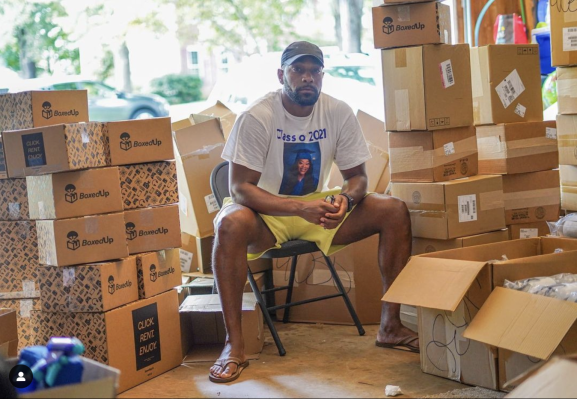The cameras, lenses, and lighting equipment to shoot even a relatively modest production can cost in the millions of dollars. Rental is often the name of the game, but the latticework of mom-and-pop equipment rentals can be hard to navigate. BoxedUp takes a fresh look at the space, creating a rental marketplace — a Turo or Airbnb for video equipment if you will — where equipment owners can offer up their gear for rent.
The company’s model works by aggregating listings from individual owners, local rental shops, and manufacturers, giving content creators access to equipment, and owners a national platform to earn money on gear. For now, the company focuses on the US only, but the investment will enable an upgrade of fulfillment capabilities, enabling BoxedUp to offer same-day delivery in key markets.
“With this funding, BoxedUp can focus on expanding the capabilities of our platform, enabling us to better serve our customers, brands, and local rental shops throughout the United States,” says Donald Boone, CEO and founder at BoxedUp said of the funding round. The company recently closed $2.3m, with money from Slauson & Co, Collab Capital, Black Capital, and Outlander VC. . “We plan to build on this opportunity and grow our team, bringing on additional engineering talent, and operational expertise.”
“The BoxedUp team is perfectly positioned to meet content creators where they are without the burden of equipment ownership and logistics while providing equipment owners a way to easily monetize their underutilized inventory,” Ajay Relan, Managing Partner at Slauson & Co, explains the thinking behind the investment. “We’re excited for this intersection of the creator and shared economies and looking forward to supporting the vision and expansion of the platform.”
The company originally started as a rental company focusing on camera kits aimed at video conferences, virtual events, and similar use cases.
“We were reacting quickly to many customer issues. The pandemic was on Full Tilt, and mainstream media really struggled with this idea that all of our talent is now absolutely dispersed throughout the world. And oh, by the way, they have really shitty cameras,” explains Boone. “I tested out a couple of camera kits, and it was looking great. A friend recommended that I should start pitching these kits to mainstream media outlets. The first company we sold to was Blavity. And then we picked up NPR and Amazon and Google and then the ball just got rolling really quickly.”
BoxedUp had stumbled into a market where the traditional players weren’t serving the customer need; high-end Hollywood productions have their own systems for renting equipment, but for the vastly sized long-tail of small and medium-sized creators, there was nothing with the ease of use that the rest of the internet has gotten used to. Once the company had a little bit of traction, things started snowballing.
“Do you guys do documentary work? Do you have anything to make renting equipment for documentaries easier,” Boone recalls the questions started coming in. “We got to thinking ‘I wonder how this experience looks like if you’re shooting a movie or a music video,’ and we came to find out it’s actually pretty miserable. At the moment it’s all email transactions. A cinematographer or videographer writes something in the notes app of their iPhone, and sends it to a rental shop. Sometimes they’re DMing people.
Building a marketplace to make these types of rentals easier was the obvious next step.
“We found a $10 billion opportunity where owner-operators are renting things out via Instagram and rental shops are still using really old websites,” says Boone. “We think that there was an opportunity for us to be the technology platform, the marketplace. The equipment owners don’t want to deal with the tech — they’re artists at the end of the day.”
In the early days, the company stocked its own equipment, and it would work with manufacturers, who would send them their open-box or cosmetically damaged items. The company would rent out on their behalf. Of course, high-end equipment is expensive, and the company decided it would make more sense to utilize the equipment that sits unused most of the time, connecting it with creators that need access to high-end video equipment.
“Instead of spending $30,000 to buy a camera to rent out one at a time, we could instead create the platform to connect people that have that $30,000 camera. So we’ve sort of shifted real-time and during COVID we owned everything, but right now our entire go-to-market is 100% empowering the local mom-and-pop rental shops and the individual owner-operators,” says Boone.
